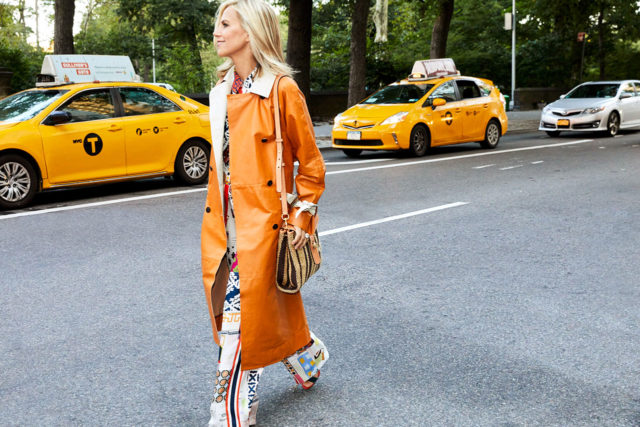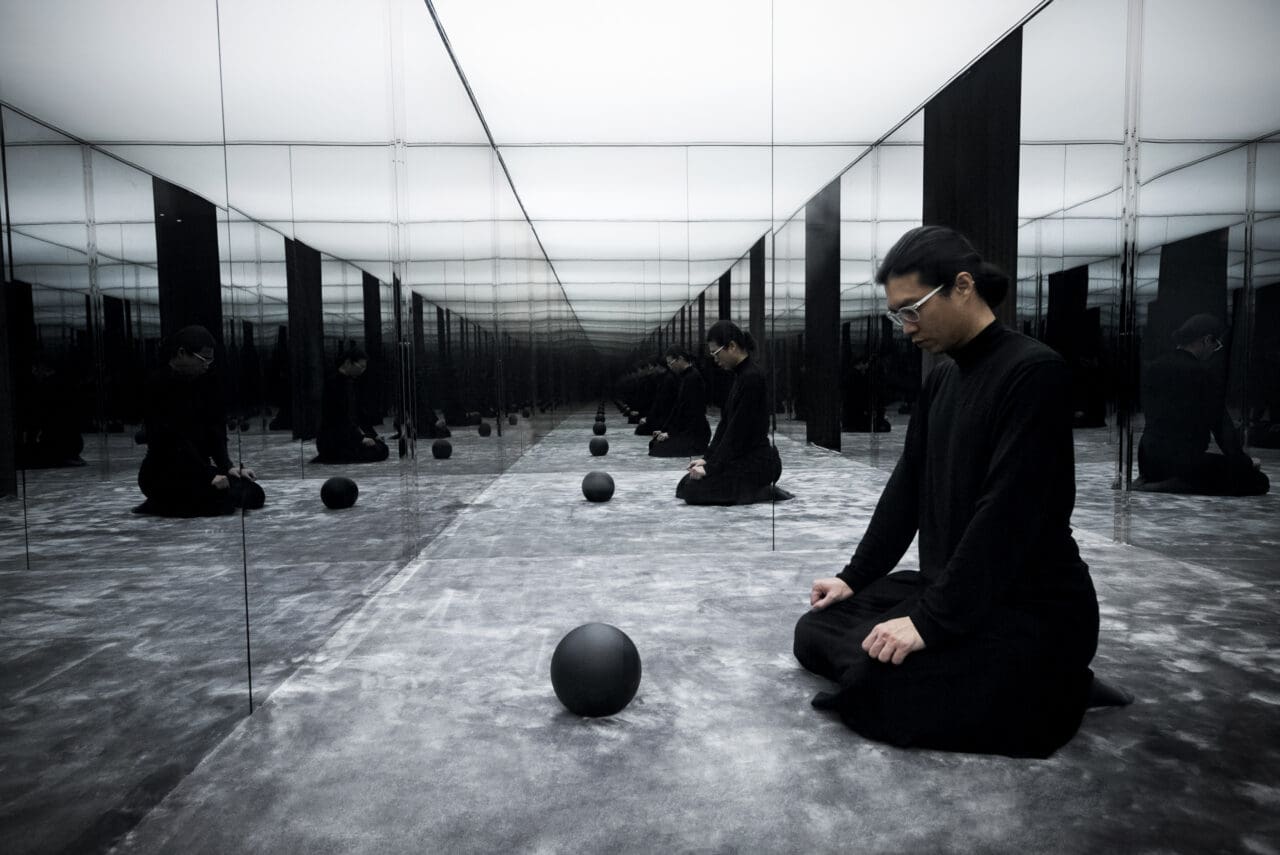Sleepy old Somerset, with its rolling, green countryside interrupted by higgledy-piggledy villages and their best-of-British pubs, comes to life each June, when festival-goers bound for Glastonbury make the pilgrimage south-west. But a smart new set of hotels, and game-changing restaurants, shops and galleries, are making it a much-desired weekend destination year-round.
It was Hauser & Wirth, with its galleries in London, New York and Hong Kong, that propelled Somerset’s small town of Bruton onto an international stage when they renovated 17th-century Durslade Farmhouse, five minutes out of town, in 2014. Available for holiday rentals, the house itself, designed by Paris-based architect Luis Laplace, became a showcase for art, with the dining room hung in a Guillermo Kuitca floor-to-ceiling mural and the sitting room lit up by a Pipilotti Rist’s video and light work. On the surrounding plot of farmland, Iwan and Manuela Wirth, who have lived in the area since 2007, developed five gallery spaces, an artist’s residence, and restaurant Roth Bar & Grill, that cooks with the farm’s produce.
Durslade Farmhouse at Hauser & Wirth Somerset
Photo: Jacques Burga
“It is a place full of energy, people and ideas. It is a world-class gallery and arts centre that is firmly connected to the local community and landscape,” says Alice Workman, Senior Director at Hauser & Wirth, who worked with Iwan and Manuela on launching the Somerset outpost. The farm also nurtures a state-of-the-art garden designed by Piet Oudolf, where London’s Serpentine Gallery 2014 Radić Pavilion now resides. “Piet created a garden that is timeless throughout the changing seasons, with an impeccable focus on structure, form and immersive blocks of colour,” says Alice.
Bharti Kher ‘A Wonderful Anarchy’ exhibition at Hauser & Wirth Somerset
Oudolf Field at Hauser & Wirth Somerset
Photo: Jacques Burga
As part of the brand’s growing hospitality ventures, Hauser & Wirth took over a pub nearby, The Bull Inn, and also opened a small gallery in Bruton itself, to contribute to a high street which promises plenty more to be excited about. Perhaps most of all for At The Chapel, a restaurant-come-gallery, bakery-come-wine-shop, with eight simple, stylish bedrooms upstairs, housed in a Grade II Listed, 17th-century former chapel. The food is terrifically good, from the wood-fired sourdough pizzas, to the Mediterranean-inspired menu, and not missing the cheeseboard piled with local cheeses and still-warm Eccles cake from the bakery. As a result, the restaurant positively buzzes with those in-the-know.
The restaurant and gallery at At The Chapel in Bruton
Photo: Jacques Burga
A few doors down, aesthetes will delight in concept store Caro, selling a covetable curation of fashion, jewellery, beauty and homeware, from Aesop soaps and Hermina Athens necklaces to a collaboration with Kana ceramics. For further treasure hunting, head down the hill to antiques store Alchemy. The former garage houses an eclectic mix of English and European decorative antiques from the 18th Century to the present day. With Bruton’s burgeoning shopping scene, it’s no wonder fashion designer Alice Temperley, who was brought up on her parents’ local cider farm and continues to live in the area, launched a pop-up shop here earlier this year.
Antiques store Alchemy in Bruton
Photo: Jacques Burga
But it’s the arrival of a new hotel concept nearby, from the owners of South Africa’s Babylonstoren, that’s really propelling the area to stardom. Koos Bekker and Karen Roos were looking for a country retreat for themselves when they stumbled upon Hapsden House, a seventeenth-century manor with pretty outbuildings and substantial farmland that they felt was too good not to share. And so became The Newt – a boutique hotel and spa with landscaped gardens, a cyder press, and a seasonal farm shop and restaurant. Water flows throughout – into newt-filled ponds, down streams and spurting from fountains – and any additional building work has taken into consideration the surrounding countryside, making clever use of glass and eco-conscious materials. “I want people to stay who are going to love it as much as me,” says Karen, who is ex-editor of Elle Decoration South Africa. “If we can spark joy, then we’re happy.”
Karen took her time sensitively restoring the main house, enhancing its period features with mid-century Italian furniture, local antiques, and oil paintings of the family who had lived there previously. A library and drawing room are lit with roaring fires, while the restaurant sees the traditional, panelled dining room open out into a glass orangery. Karen has taken a pared-back approach to the bedrooms, with fresh white walls, wooden four-poster beds, and bookcases full of must-reads. There are further bedrooms in the outbuildings, some in charming converted stables, while a large barn houses an indoor-outdoor swimming pool and spa.
The Newt's Hapsden House and kitchen garden
Photo: courtesy of The Newt
As beautiful a place to stay and be pampered, the magic of this hotel lies in its produce. With gardens open to the public that feature extensive vegetable plots, orchards that grow more than 3,000 apple trees harvested for cider (and the many pick and mix baskets of apples that lie about), and beehives nurtured for honey, The Newt is somewhere to truly indulge in Somerset’s farm-to-table culture. “It’s all about agriculture,” says Karen. “The idea is about having food grown in abundance here.”
The Garden Cafe at The Newt
Photo: courtesy of The Newt
The Newt owner Karen Roos (second from top left) with the gardeners
Photo: courtesy of The Newt
On a smaller scale (though with sister hotels throughout the UK), The Pig near Bath is championing a similar concept. The country house hotel, that counts cosy garden huts heated with log burners amongst its bedrooms, is as much a weekend destination for its organic food offerings – committing to a “25-mile menu” – as for its accommodation. An extensive kitchen garden grows everything from fennel to beetroot, and, true to its name, there are pigs roaming in the field beyond. Twenty minutes from Bath, this is the place to retreat to after a day of exploring, to indulge in a spa treatment in a garden cabin, or to curl up by the fire with a gin-based cocktail (the bar stocks an extensive collection of gins, some local).
A garden cabin bedroom at The Pig, near Bath
Photo: Jacques Burga
Not far away, members’ club Soho House, that opened in Hong Kong this autumn, also has an outpost here. Babington House is a hotel, restaurant and spa, in 18 acres of parkland, offering an idyllic retreat for the brand’s predominantly city-dwelling clientele. It was the first of its kind for Soho House, and it is increasingly apparent as to why they chose Somerset, a two-hour drive from London where life slows down and follows the lead of the land.
Editor
Alice Riley-Smith

















